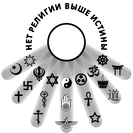
- Дописано ЕПБ
- Подчёркнуто ЕПБ
- Зачёркнуто ЕПБ
- <Пометка редактора>
- <Пометка архивариуса>
- Утеряно
< A few Questions to “Hiraf * * * * *” (продолжение со стр. 1-41) >
... <Продолжение на стр. 1-43>
* Knowing but little about Occultism in Europe I may be mistaken; if so, any one who knows to the contrary will oblige me by correcting my error.
§ The same mistake pervades the whole of that able book, The Rosicrucians, by Hargrave Jennings.
** For those who are able to understand intuitionally what I am about to say, my words will be but the echo of their own thoughts. I draw the attention of such only, to a long series of inexplicable events which have taken place in our present century; to the mysterious influence directing political cataclysms; the doing and undoing of crowned heads; the tumbling down of thrones; the thorough metamorphosis of nearly the whole of the European map, beginning with the French Revolution of ’93, predicted in every detail by the Count de St.-Germain, in an autograph MS., now in possession of the descendants of the Russian nobleman to whom he gave it, and coming down to the Franco-Prussian War of the latter days. This mysterious influence called “chance” by the skeptic and Providence by Christians, may have a right to some other name. Of all these degenerated children of Chaldaean Occultism, including the numerous societies of Freemasons, only one of them in the present century is worth mentioning in relation to Occultism, namely, the “Carbonari.” Let some one study all he can of that secret society, let him think, combine, deduce. If Raymond Lully, a Rosicrucian, a Cabalist, could so easily supply King Edward I of England with six millions sterling to carry on war with the Turks in that distant epoch, why could not some secret lodge in our day furnish, as well, nearly the same amount of millions to France, to pay their national debt—this same France, which was so wonderfully, quickly defeated, and as wonderfully set on her legs again. Idle talk!—people will say. Very well, but even an hypothesis may be worth the trouble to consider sometimes.
Заметки редактора
